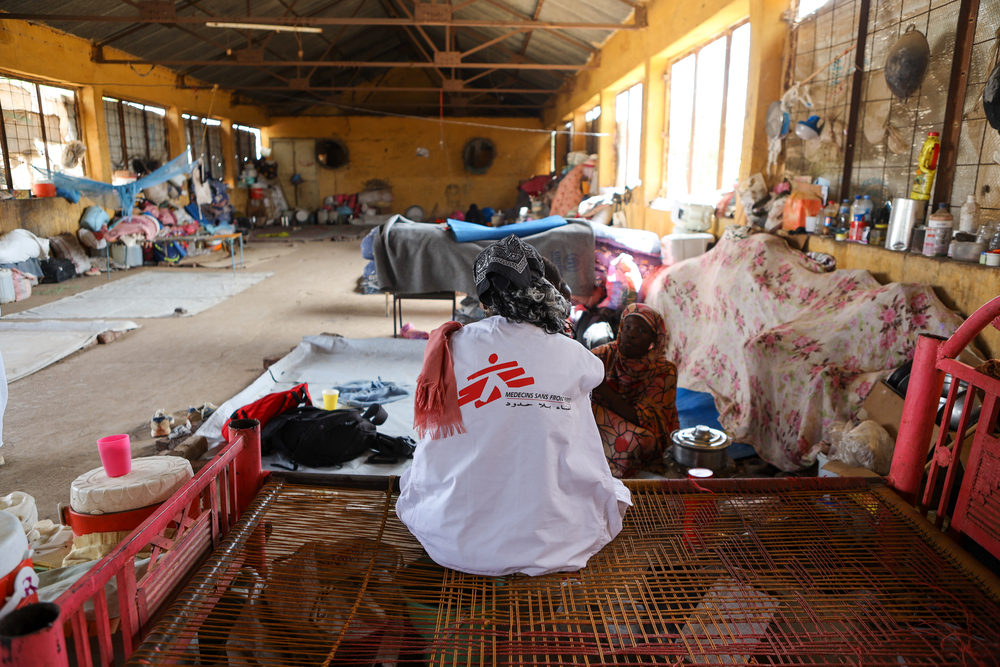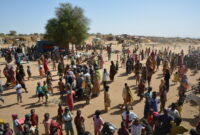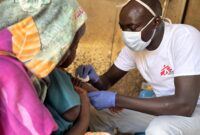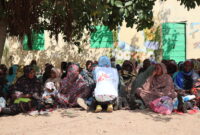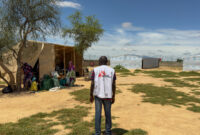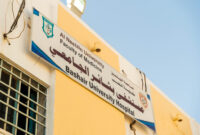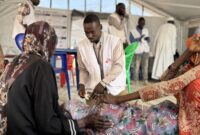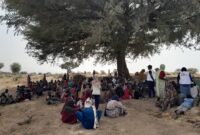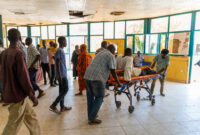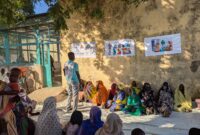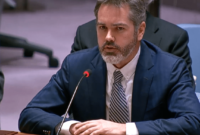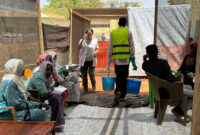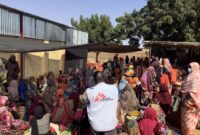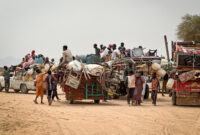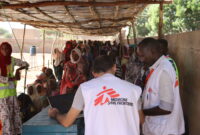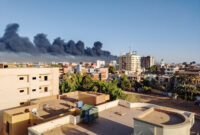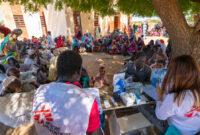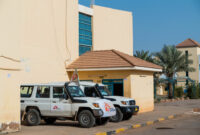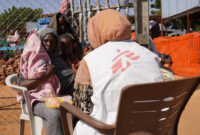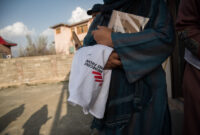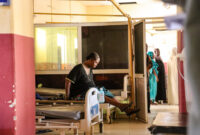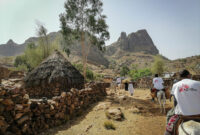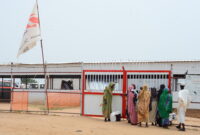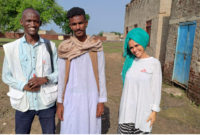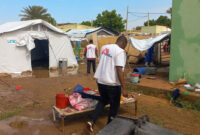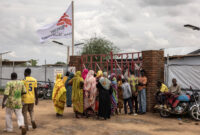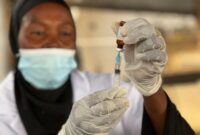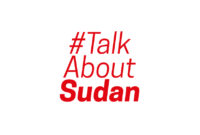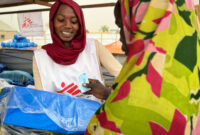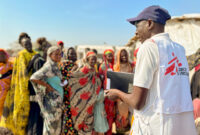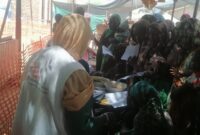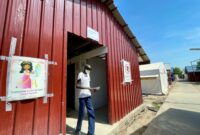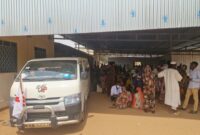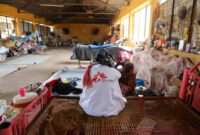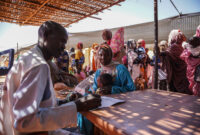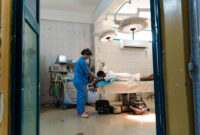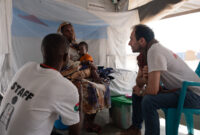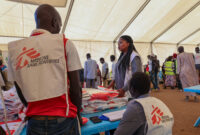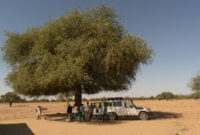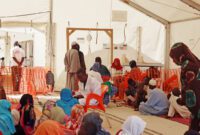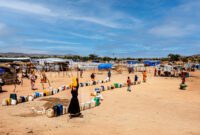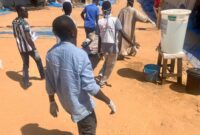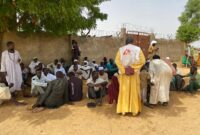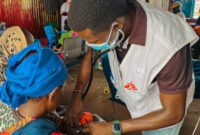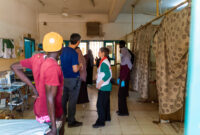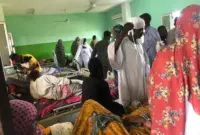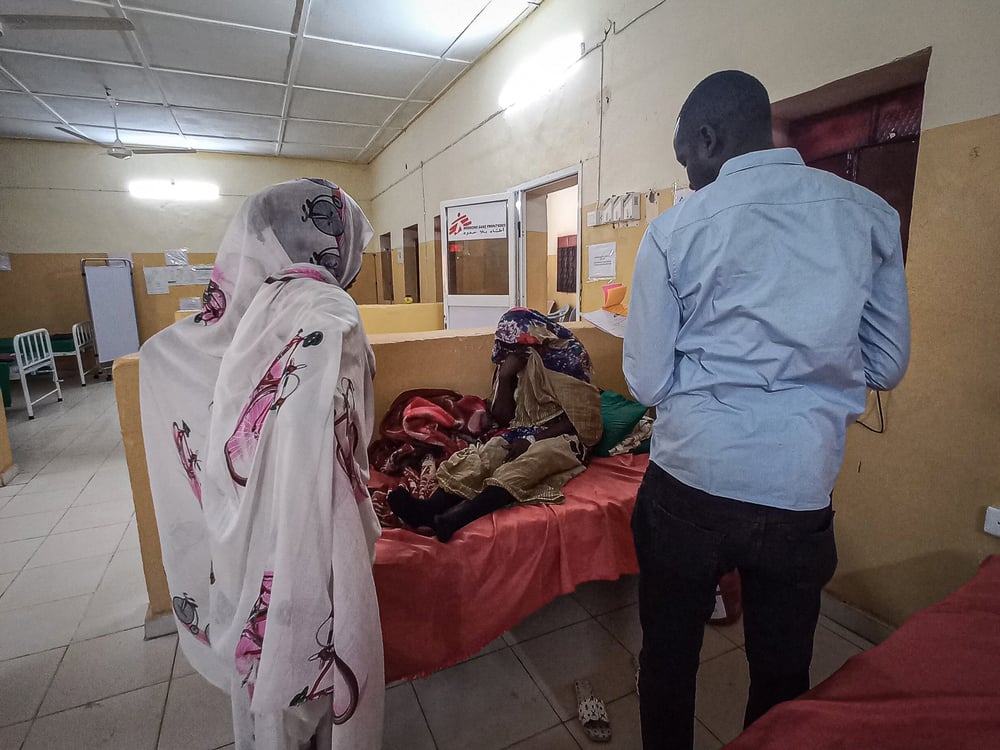Crisis in Sudan
Millions of people in Sudan struggle as violence and displacement worsen
On April 15, 2023, intense fighting broke out across Sudan with a wave of gunfire, shelling and airstrikes.
The violence between the Sudanese Armed Forces (SAF) and the Rapid Support Forces (RSF) has trapped millions of people in the middle of an unexpected conflict. Many have been forced to flee their homes while access to essential services such as healthcare has become increasingly difficult.
Doctors Without Borders/Médecins Sans Frontières (MSF) teams already working in Sudan have been responding to the crisis since its first moments.
Our healthcare projects and hospitals – in some places the only medical facilities still open – are treating an influx of critical patients: people wounded in the violence, pregnant women in labour and chronically ill people with nowhere else to go.
Overworked Sudanese healthcare workers, many unpaid for months, strive to provide care amid immense challenges. Immediate action and increased support are crucial for displaced communities and the strained healthcare system.
The situation is extremely fast-moving. The information below is correct as of February, 2025.
People displaced by the war (UN figures)
- Over 12 million people have been forcibly displaced since April 2023
- Over 8.8 million people have been internally displaced since April 2023
- Around 3.3 million people have crossed the borders to neighbouring countries since April 2023
- Chad, Egypt and South Sudan are receiving most of the returnees, asylum seekers and newly arrived refugees from Sudan
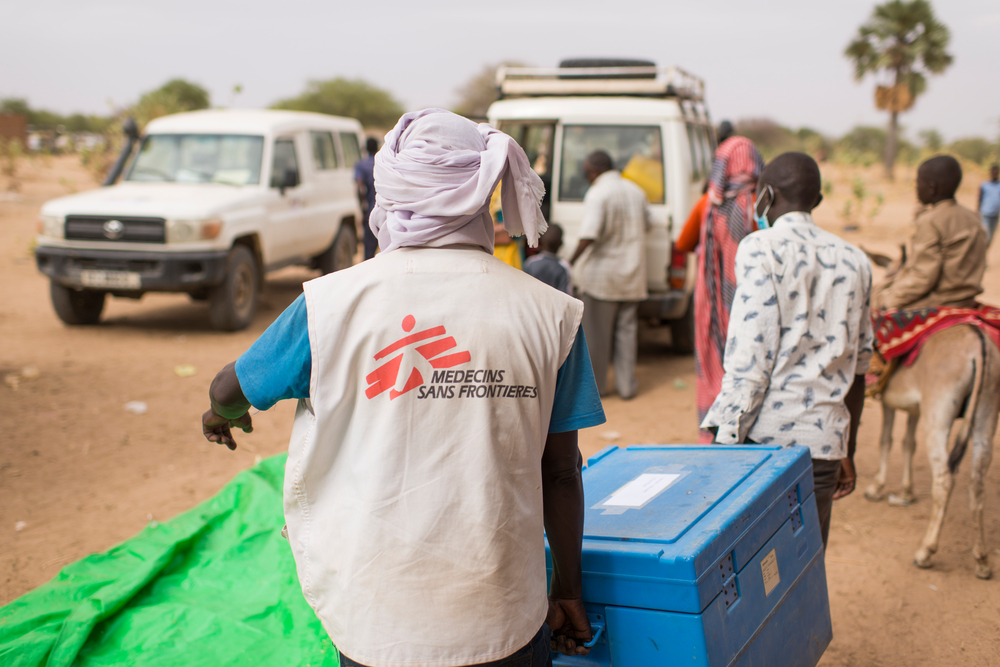
What is MSF doing?
MSF teams continue to see immense humanitarian needs in Sudan as well as in neighbouring countries where people have fled in search of safety.
Close to 1,600 Sudanese staff and more than 220 internationally hired staff are working as part of our response.
In Sudan
As of February 2025, MSF teams work in 10 states in Sudan: Khartoum, Gedaref, White Nile, Kassala, River Nile, West Darfur, North Darfur, Central Darfur, South Darfur and Blue Nile.
Right now, our teams:
- provide emergency care and surgery, including trauma care, for war and non-war injuries
- deliver maternal and pediatric healthcare, including cesarean sections
- screen for malnutrition and treat acutely malnourished children and pregnant women in hospitals and at home
- run outpatient services and mobile clinics, including in refugee and displacement camps
- run routine and catch-up vaccination campaigns
- respond to disease outbreaks, including cholera and measles
- donate medicines and medical supplies to healthcare facilities
- support Ministry of Health staff with incentives, training and logistics
- provide water and sanitation services, including setting up, restoring and cleaning latrines and water points
MSF also continues some of our medical activities in place before the start of the war.
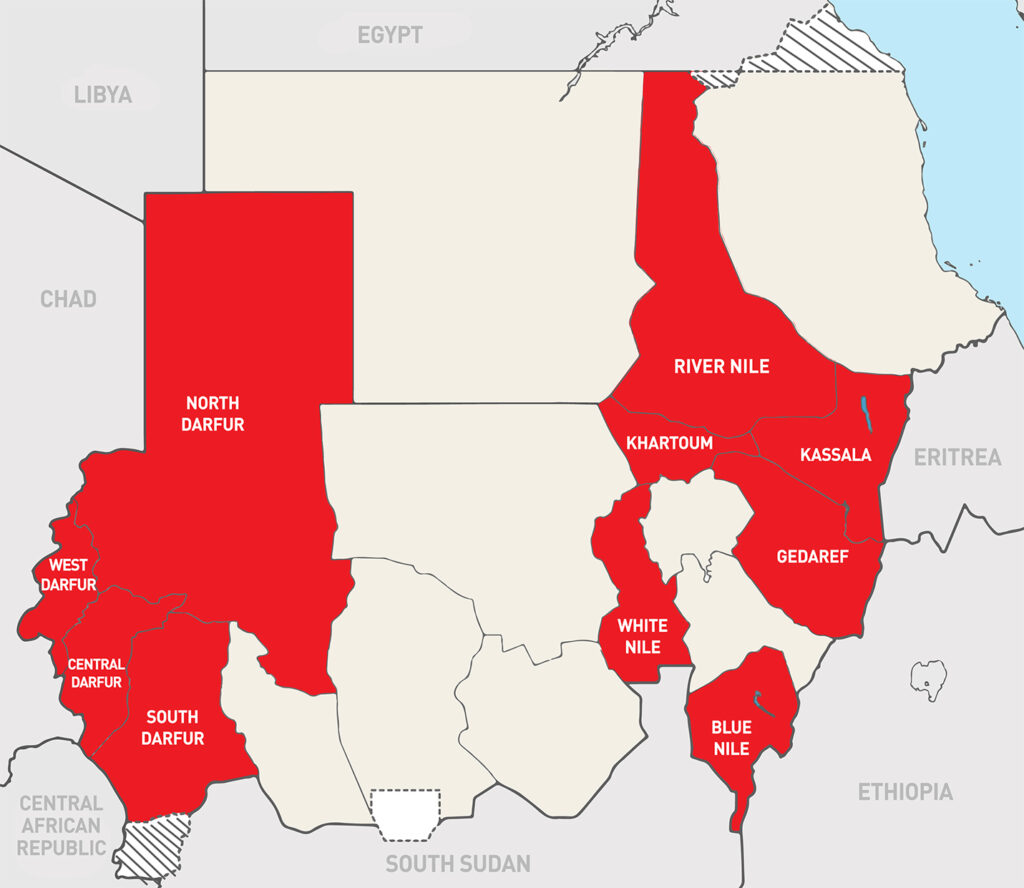
In 2024, MSF teams provided the following medical care in Sudan:
In South Sudan
Since the eruption of conflict in Sudan, over 1 million people have crossed into South Sudan to seek refuge. This influx has overwhelmed the already dire humanitarian situation in the country. Our teams are running emergency activities in Renk, Abyei special administrative area and Juba to provide the refugees and returnees with healthcare services, including care for people with war-related injuries. After a cholera outbreak was declared in Renk, MSF teams vaccinated people in Renk, Malkal, Rubkona and Juba, as well as in Gorom refugee camp.
In Chad
Over 734,000 refugees and returnees have crossed the border from Sudan to Chad. People are living in camps in Chad and are facing difficulties securing even their most basic needs. With a lack of water, food, proper shelter and healthcare they are suffering from diarrhea, malnutrition and malaria.
MSF teams are responding in three border regions, Sila, Wadi Fira and Ouaddaï.
In Chad, we provide basic healthcare, malnutrition screening and treatment, vaccinations as well as sexual and reproductive healthcare through existing local health facilities and mobile clinics. Our teams have also begun digging boreholes to supply camps and local communities with water. In some places, we provide refugee communities with plastic sheeting, mosquito nets and bars of soap, which are crucial to prevent the spread of malaria and diarrhea.
Zamzam camp
Feb. 24 update: Due to the current escalation of attacks and fighting in and around Zamzam camp for displaced people, MSF has been forced to suspend all activities in the camp near El Fasher in North Darfur, including the MSF hospital. Meanwhile, our teams continue to run emergency activities in Tawila and seeks ways to assist people in Zamzam and El Fasher without exposing staff to unacceptable risk levels.
The crisis explained
Following a military coup in 2021, most international assistance to Sudan was frozen. This led to an economic crisis and increased food insecurity.
Sudan’s healthcare system was also extremely fragile even before the recent escalation in violence and access to basic medical services has been a challenge for most people. This critical situation has been caused by a combination of recurring violence and conflict, the economic situation and the cost of healthcare, and an overall lack of medical staff and resources.
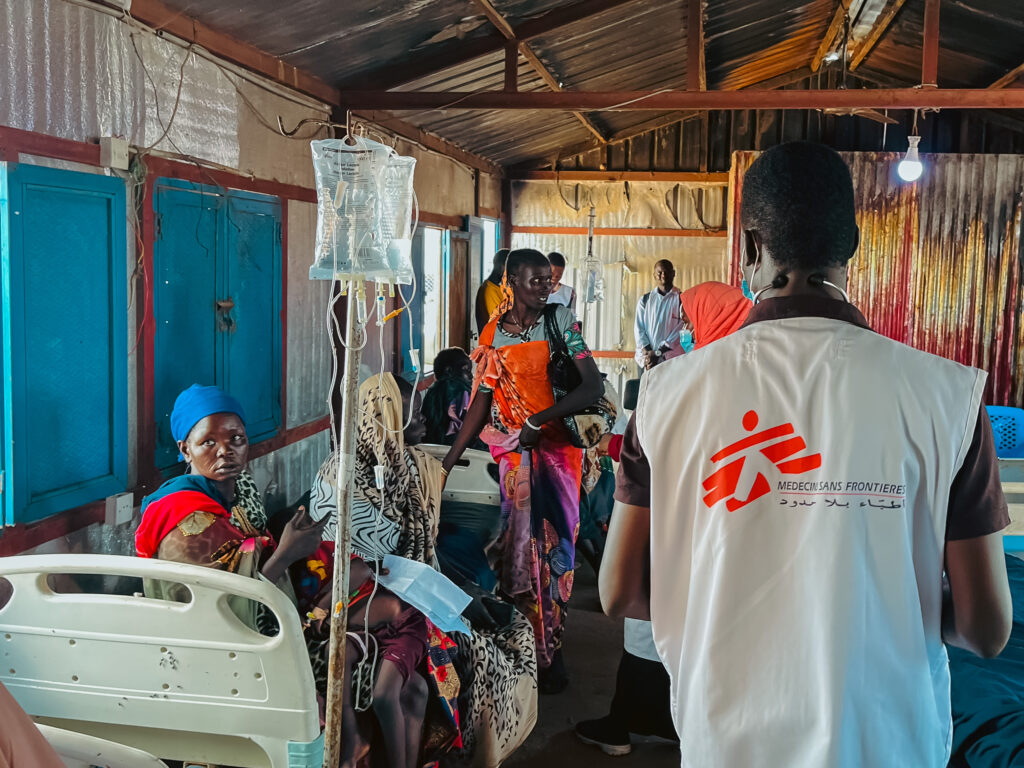
Added to this, the sharp decline in international assistance has had consequences including reduced vaccination coverage and increased malnutrition among children.
Before the conflict, around 78,000 children under five were dying each year due to preventable causes such as malaria.
Access to pregnancy and childbirth care is another vulnerable area – Sudan already had a high maternal mortality rate, with around 25 per cent of births unattended by a skilled healthcare professional. At the start of the war, it was estimated there were 219,000 pregnant women in Khartoum alone, with 24,000 due to give birth.
The stark reality is that Sudan’s healthcare system has been on the verge of collapse for decades. However, with the rapidly deteriorating humanitarian and security situation, low-running supplies and under-pressure staff, it is now at breaking point.
MSF in Sudan
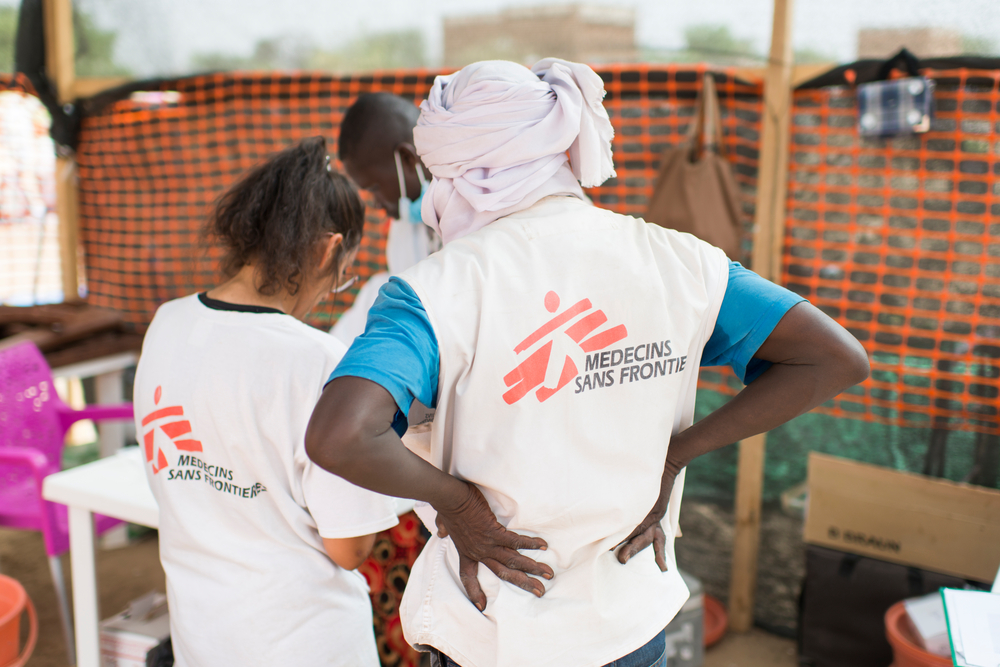
MSF has been working in Sudan since 1979. We have been providing medical assistance throughout the civil war that led to the separation with South Sudan in 2011, and the decade-long conflict in the Darfur region.
Before the recent escalation in violence on April 15, 2023, we were running 11 medical projects across 12 states. This included 24 healthcare facilities, from mobile clinics to hospitals.
In 2024, MSF teams in Sudan held 889,705 outpatient consultations, admitted 73,092 people to hospital, treated 59,887 cases of malnutrition and assisted in 24,318 deliveries.
MSF in conflicts
Around one-quarter of our projects are dedicated to assisting people living in areas of war and armed conflict including Yemen, South Sudan, Nigeria, Iraq and Syria among many others.
Armed conflict devastates lives and destroys communities. Targeted, harassed and caught in hardship and poverty, people are forced into flight or to live under siege and face indiscriminate attacks. Access to basic needs such as food and medical care is often disrupted.
Comprehensive medical and humanitarian support is vital, though health services are often scarce. MSF provides medical care based on needs alone and works hard to reach people who need help the most.
